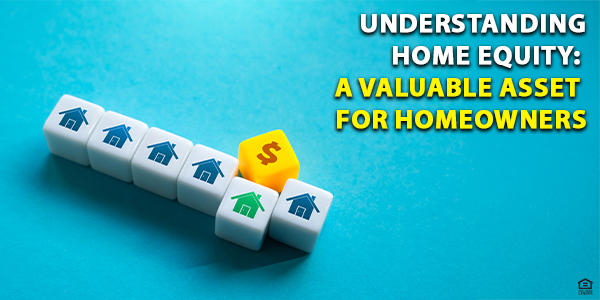
Understanding Home Equity: A Valuable Asset for Homeowners

Homeowners often leverage their home equity for home improvement projects, debt consolidation, and more. And according to data from the Intercontinental Exchange (ICE), homeowners across the United States are sitting on a collective $17.2 trillion in home equity as of the third quarter of the year.
Of that total equity, around 65% is “tappable,” meaning homeowners can borrow against it while still maintaining a 20% equity stake in their homes. This gives homeowners access to roughly $207,000 in tappable equity per borrower, offering them significant financial flexibility.
What Is Home Equity?
At its core, home equity is the difference between the current market value of your home and the amount you still owe on your mortgage. In simpler terms, it represents the portion of your home that you own outright.
When you first purchase a home, your equity stake is typically equal to your down payment. For example, if you purchase a home for $400,000 and put down 20% ($80,000), your initial equity would be $80,000.
As you continue to make mortgage payments, your equity increases- assuming the home’s value remains stable or appreciates- because you are paying down your loan balance while your home retains or increases in value. This accumulated equity can become a valuable financial resource as you move through your homeownership journey.
The Most Common Reasons Homeowners Leverage Their Home Equity
Home equity can be a powerful financial tool, and many homeowners use it to meet a variety of needs. Here are some of the most common ways homeowners tap into their home equity:
Finance Home Improvements: Whether you want to remodel your kitchen, add a bathroom, or enhance your home’s curb appeal, borrowing against your home equity allows you to reinvest in your property. Additionally, if the renovation increases the value of your home, you may even see a return on your investment when it comes time to sell.
Consolidate High-Interest Debt: Another common reason homeowners access their home equity is to consolidate high-interest debts, such as credit card balances or medical bills. Credit card interest rates can be as high as 20% or more, while mortgage rates tend to be significantly lower. By consolidating these debts into a lower-interest mortgage loan, you can potentially save money on interest, reduce your monthly payments, and simplify your finances. This is particularly effective for homeowners who have built up significant equity in their homes.
Pay Off Other Expenses: Home equity can also be used for large, one-time expenses, such as paying for a child's education, funding a major medical procedure, or managing other unforeseen financial needs. With a home equity loan or line of credit, homeowners can access a lump sum or revolving line of credit to cover these costs with the potential for lower interest rates compared to personal loans or credit cards.
Consider a Refinance to Pay Off High-Interest Debt
One of the most effective ways to leverage home equity is through a cash-out refinance. With a cash-out refinance, homeowners refinance their existing mortgage for a larger amount than they currently owe and receive the difference in cash. This extra cash can be used to pay off high-interest debts, such as credit card balances, student loans, or car loans.
The primary advantage of using a cash-out refinance to consolidate debt is the potential for lower interest rates. Mortgage rates are typically much lower than those for other forms of credit, such as credit cards or personal loans. As a result, you could save a significant amount of money in interest over time, especially if you have a large amount of high-interest debt to pay off.
It’s important to note that cash-out refinancing works best when you have enough equity in your home to pay off a large portion (or all) of your high-interest debt. If your home’s value has increased significantly since you purchased it, this could be a great option to reduce your overall debt burden.
Closing Thoughts
Home equity is more than just a number on a balance sheet; it’s a valuable asset that can be used to improve your financial well-being. Whether you’re looking to make home improvements, consolidate debt, or cover large expenses, tapping into your home equity can help you achieve your goals.
If you're considering leveraging your home equity, it's essential to evaluate your options carefully and determine the most effective strategy for your financial situation. With the right planning, using home equity can be a smart move that puts you on a path to long-term financial success.